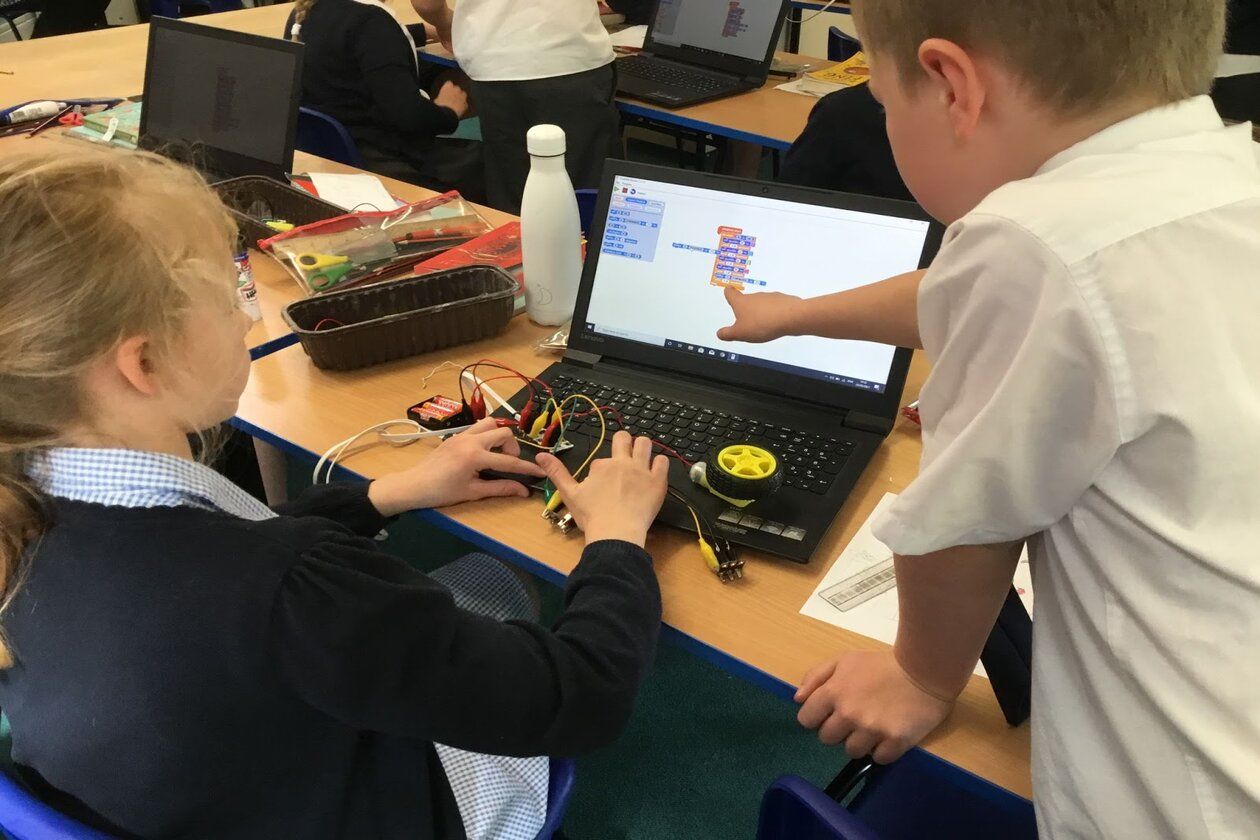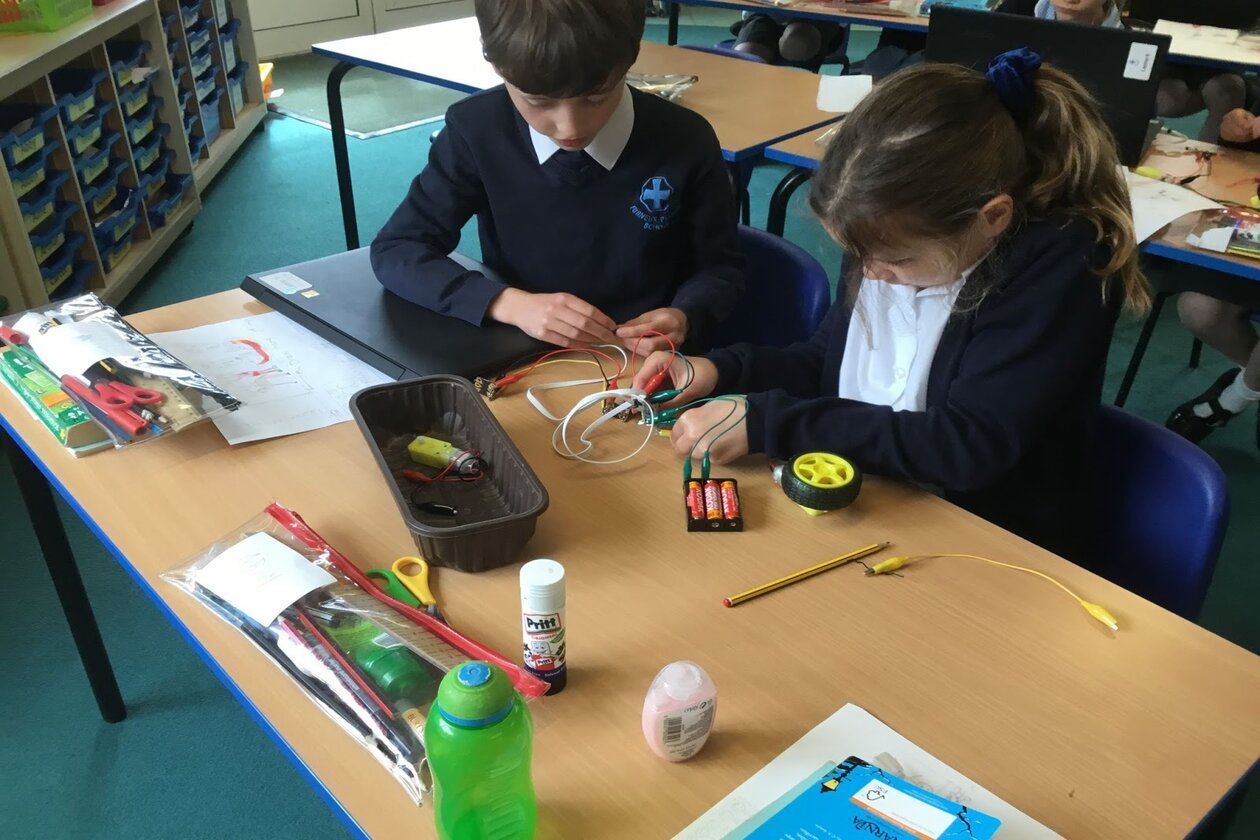NCCE physical computing kits, coming soon to a Computing Hub near you
13 July 2021

Looking to teach physical computing in your classroom next year but not sure where to start? Do you need free guidance, training, and access to the latest physical computing equipment? Then read on…
We are excited to announce that after a successful trial of offering physical computing kits in six NCCE Computing Hubs, we are now starting to roll the kits out to a further fourteen Computing Hubs this September. Get your hands on the latest technology and help your students learn how to build physical projects that are controlled with computers. All for free!

What is physical computing and how will it help me teach?
Physical computing means interacting with real-world objects by programming them with a computer. You can fulfil many areas of the computing curriculum at all key stages through physical computing, from the development of programming skills to more conceptual learning.
NCCE Hubs will have physical computing kits in the form of classroom trays with eitherCrumble (×17 per tray), micro:bit (×17 per tray), Raspberry Pi Pico (×10 per tray), or Raspberry Pi 3 Model B+ (×10 per tray) devices available to borrow.
Each tray contains a classroom's worth of devices, along with all the peripherals (such as LEDs, motors, wheels, and cables) needed to complete the following units from the Teach Computing Curriculum:
- Crumble
- Key Stage 2 – Year 5 – Programming A – Selection in physical computing
- Micro:bit
- Key Stage 2 – Year 6 – Programming B – Sensing
- Key Stage 3 – Year 9 – Physical computing
- Raspberry Pi Pico Key Stage 4 – Physical computing project
Feedback from the pilot
Suzanne Kennard, a primary school teacher from Furneux Pelham in Hertfordshire, had never tried physical computing before. She shared her experience of borrowing a physical computing kit from our London, Hertfordshire, and Essex Hub:
“As computing lead in a small school, I am looking to develop and enhance the teaching of computing across the school. … I liked the look of the physical computing unit but after doing some research I felt sure that several hundred pounds for the Crumbles and accessories would not be approved by the finance department! It was then I saw the loan scheme mentioned in an email circular and contacted the Hub school.
We completed most of the sessions while we had the kit. I found that as my confidence increased, I could set the class challenges as regards to the colours and sequences they could programme. They really benefited from the physical equipment.”

Chloe Barden, a teacher from Great Chesterford Primary Academy in Essex also borrowed a classroom tray of Crumbles from the London, Hertfordshire, and Essex Hub. She reported that the lesson plans and slides from the Teach Computing Curriculum have been hugely beneficial to her teaching as she had never used Crumbles or tried to teach physical computing before. She said, “This meant that I felt quite unconfident with delivering the Crumble lessons! Having the kit enabled me to try things out before teaching and familiarise myself with the components.”
Guidance and training
The NCCE has developed three new face-to-face courses to accompany the physical computing Hub kits that introduce the Crumble, micro:bit, and Raspberry Pi Pico:
- Physical computing kit – KS2 Crumble
- Physical computing kit – KS3 micro:bit
- Physical computing kit – KS4 Raspberry Pi Pico
In addition, the following online courses are available for teachers looking to develop their physical computing skills:
- Programming pedagogy in primary schools
- Programming pedagogy in secondary schools
- Getting started with your Raspberry Pi
- Teaching physical computing with Raspberry Pi and Python
- Robotics with Raspberry Pi: Build and program your first robot buggy
- We also have a new course launching soon: Teaching Physical Computing to 5–11 year olds
All of these courses are available to book from the courses page on the Teach Computing website.
Which NCCE Hubs have the physical computing kits available to borrow?
All the hubs listed below can be contacted now to borrow a physical computing kit from the start of next term in September.
Don't worry if you can't see your local hub listed — any hubs not mentioned here will receive their kits by the end of September and will be able to start loaning them out shortly afterwards.
Cumbria and NE
Newcastle, Durham, and East Cumbria
- Cardinal Hume Catholic School – TeachComputing@cardinalhume.com
North East and Northumberland
- Kings Priory School – TeachComputing@kps.woodard.co.uk
East Yorkshire, Humber, and Lincs
Lincolnshire
- The Priory Academy – TeachComputing@lincstsa.co.uk
East Midlands
Leicester and East Midlands
- Beauchamp College – TeachComputing@lionhearttrust.org.uk
East of England
Cambridge and Northamptonshire
- Chesterton Community College – teachcomputing@ccc.tela.org.uk
London, Hertfordshire and Essex
- Saffron Walden County High School – TeachComputing@swchs.net
Greater Manchester, Merseyside and Cheshire
Warrington and Merseyside
- Priestley College – TeachComputing@bca.warrington.ac.uk
Cheshire
- The Fallibroome Academy – TeachComputing@eatonbank.org
Lancs, North and West Yorks
West Yorkshire
- Bingley Grammar School – TeachComputing@bingleygrammar.org
West England
West Berkshire and Hampshire
- Park House School – TeachComputing@parkhouseschool.org
Great London and Buckinghamshire
London and Hertfordshire
- Sandringham School – teachcomputing@albantsa.co.uk
Oxfordshire and Buckinghamshire
- St Clement Danes School – teachcomputing@stclementdanes.herts.sch.uk
South East
Dartford and East Sussex
- Dartford Grammar School – TeachComputing@dartfordgrammarschool.org.uk
West Sussex and Hampshire
- Bohunt School – TeachComputing@bohunt.hants.sch.uk
South West
Cornwall, Plymouth and Torridge
- Truro and Penwith College – TeachComputing@truro-penwith.ac.uk
West Midlands
Herefordshire, Shropshire, South Staffordhire, Worcestershire
- The Chase School – TeachComputing@chase.worcs.sch.uk